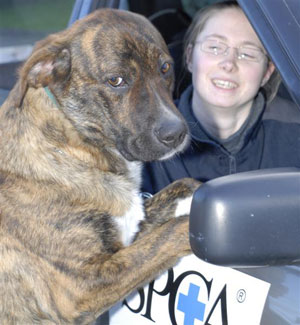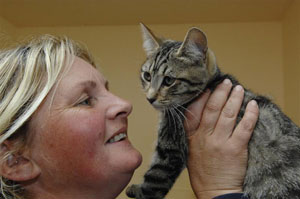Animal Attendant
Tasks & duties

Animal attendants may do some or all of the following:
-
clean and inspect the animals and their enclosures and/or habitats
-
feed the animals and ensure their individual nutritional requirements are fulfilled
-
see to the well-being needs of animals including their bathing, grooming, exercise and health care requirements
-
treat animals for minor injuries and illnesses under vet supervision
-
train animals and help to develop training programmes
-
carry out maintenance work for animal environments including looking after the grounds, caring for plants in animal habitats and carrying out repair work on animal homes
-
be involved with developing programmes to enrich animals' behaviour and environment
-
maintain records and carry out any general office work relating to animal care
-
be involved in the design of new habitats for animals
-
assist the public, answer their questions and give educational talks
-
observe and record animal behaviour and assist with the handling of animals in research projects
-
participate in conservation related projects, such as breed-and-release programs
-
find homes for stray or unwanted animals
Specialisations
Animal attendants may specialise in caring for certain species of animals, such as reptiles or carnivores, especially if they work in zoos.
Skills & knowledge

Animal attendants need to have:
-
animal-handling skills
-
knowledge of animal behaviour
-
knowledge of animal training techniques
-
knowledge of animal diseases
-
knowledge of first aid
-
grooming skills
-
communication and teamwork skills
-
organisational skills
-
the ability to follow instructions
Entry requirements
You can work as an animal attendant without formal qualifications. You will probably get some informal training on the job. However, entry to this occupation may be improved if you have qualifications. You may like to consider a VET qualification in animal studies, animal technology, captive animals, companion animal services or a related area. As subjects and prerequisites can vary between institutions, you should contact your chosen institution for further information.
You can also become an animal attendant through a traineeship in Animal Studies, Companion Animal Services, Animal Technology or Captive Animals. Entry requirements may vary, but employers generally require Year 10
Training on the job
Skills are learned on the job, and animal attendants are sometimes encouraged to gain tertiary qualifications. They can also update their knowledge and skills through attending conferences and seminars run by animal associations.
Useful experience
Any experience working with people and animals is useful.
Related courses
Land, Parks and Wildlife Management
Veterinary Assisting
For more information, please refer to myfuture.
Document Actions
